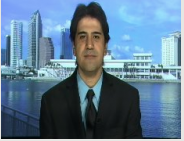
Iranian leaders have long been yearning for this implementation day. The country's dream, the lifting of economic sanctions, has come true after almost 20 years.
According to the terms of the nuclear agreement, which was reached in July between Iran and the P5+1 group -- Britain, China, France, Russia and the United States plus Germany -- the implementation means several things. On the one hand it means that:
1.Tehran will get major relief from sanctions imposed by the United Nations Security Council (UNSC) as well as unilateral Western sanctions.
2.Iran will receive roughly $90 billion as European countries lift sanctions on major industries such as gold and metal.
3.The U.S. will remove major Iranian entities and individuals from the sanctions list.
4.More fundamentally, Tehran will re-enter the international banking and financial system and sell oil on the global market as the related sanctions will also be lifted.
On the other hand, it demonstrates that:
1.Iran has significantly decreased its installed centrifuges form 19,000 to 7,000 keeping the rest in monitored storage.
2.Tehran has reduced enriched uranium stocks from over 10,000 kilograms to roughly 500kg.
3.Iran is a year away from building an atomic bomb.
4.The core of the Arak heavy water reactor - where plutonium was being produced - has been filled with cement.
5.Iranian scientists have limited their research and development on some aspects of nuclear developments including advanced centrifuges and will continue to limit for the next 10 years.
Unanswered questions
Will Iran continue to comply with the International Atomic Energy Agency (IAEA) regulations? Will the extra cash, coming out of sanctions relief, trickle down to the Iranian people?
This is a big day for Iranian people as they are celebrating the lifting of sanctions and more fundamentally, the improvement of ties between Washington and Tehran. "The lifting of sanctions is the best political news I have heard in the last three decades," Haleh, a 49-year-old university professor in Shiraz pointed out.
However, unfortunately, Iranian people are less likely to see the economic and political fruits of sanction relief anytime soon. The Iranian Revolutionary Guard Corps (IRGC) will continue its crack down on any opposition, suppress freedom of speech, expression and press. In addition, most of the financial gains are going to go towards IRGC and Quds Forces because they have monopoly over Iran's politico-economic establishments.
The major loophole is that there exists no adequate UNSC mechanism to roll back sanctions, if Iran chooses to resume its nuclear proliferation. Considering the geopolitical rivalry between the West, Russia and China, getting Moscow and Beijing back on board is not going to be easy.
The U.S. and European countries will have no financial incentive to push for snapping back sanctions, if Iran heads towards building a nuclear bomb. This is due to the fact that the European firms will be investing in the largest untapped emerging market in the world (representing over $1 trillion of value) and American firms will be operating in Iran, using subsidiaries or getting waivers from the U.S. Department of Treasury. More than 190 waivers have already been granted in the U.S.
Moreover, the one-year breakout time will not be realistically adequate to react even if the international community caught Iran cheating. Finally, after 10 years, Iran will be allowed to enrich uranium or spin centrifuges at any level that it desires, and the embargo on Iran's ballistic missile will be lifted.
The other question is how will the IAEA inspect all nuclear facilities and verify Iran's compliance? It is still questionable how the IAEA was capable of inspecting all nuclear facilities in Iran, approve all the aforementioned conditions, and green-light the Islamic Republic's compliance and intentions in only five months.
Tactical foreign policy shift?
Will lifting of sanctions alter the Islamic Republic's foreign policy, as President Obama has suggested?
If one examines meticulously, all signs suggest that the fundamental pillar of Iran's foreign policy will remain intact. Even before the nuclear issue, Tehran held the same hegemonic ambitions and pursuit for regional pre-eminence. Iran's reliance on application of hard power in the region will escalate.
Now, with more dollars in the IRGC treasury and with West leaning towards Tehran, the Islamic Republic will continue -- and will be more empowered -- to support Assad, the ruling Shiite politicians in Iraq, Hezbollah, the Houthis, and other Shiite proxies.
Diplomacy, tactical and strategic cooperation between Iran and the West will continue to improve. Bilateral trade will increase. However, Iran's reliance on soft power and diplomacy in the region is worsening.
The implementation of this agreement is definitely a day of joy for Iranian leaders (hardliners and moderates) as well as the P5+1. The major question is whether this will mark the beginning of an imminent regional war if Tehran does not alter its policies in the region. It will be more critical to focus on the long-term impact going forward.
--
Dr. Majid Rafizadeh, an American scholar and political scientist, is the president of the International American Council on the Middle East. Harvard-educated, Rafizadeh serves on the advisory board of Harvard International Review. He is originally from Iran and Syria. You can contact him at Dr.rafizadeh@post.harvard.edu or follow him at @majidrafizadeh
This post first appeared on Al Arabiya.

